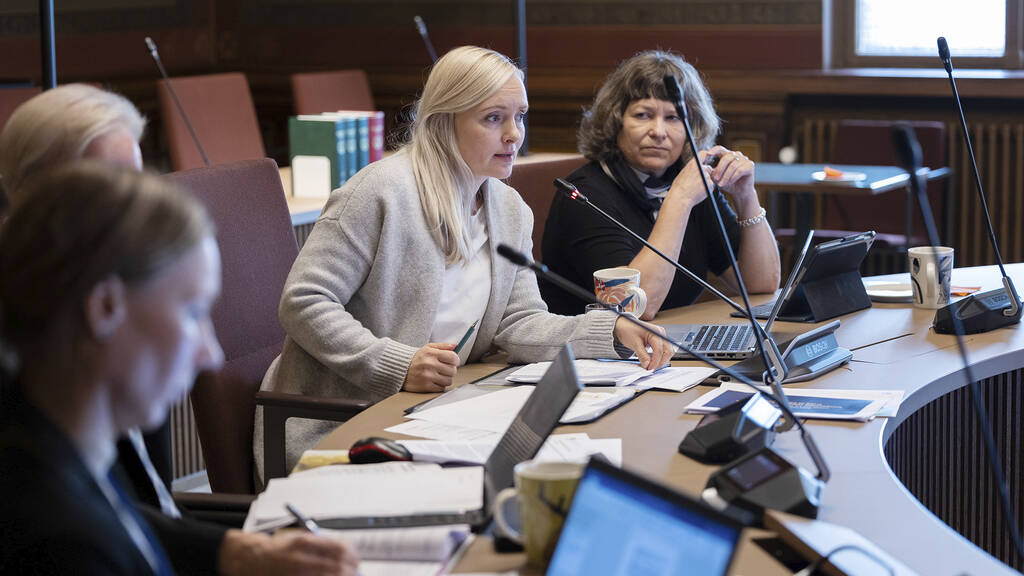Climate Policy Roundtable: Solutions to energy crisis must not slow down green transition

At its meeting on Thursday, the Climate Policy Roundtable stressed that the short-term measures to find solutions to the energy crisis must not override the long-term actions to mitigate climate change. The measures raised in the discussion included increasing the production of renewable energy, implementing the hydrogen strategy, saving energy, measures taken within the EU, and supporting those who are in a vulnerable position. The meeting was chaired by Maria Ohisalo, Vice-Chair of the Climate Policy Roundtable.
Petteri Kuuva, Senior Ministerial Adviser at the Ministry of Economic Affairs and Employment, gave an introduction to the state of play on the national and EU energy market, and Mikko Heikkilä, Head of Strategic Grid Planning at Fingrid, spoke about the outlook of the Finnish electricity market. Lauri Kajanoja, Economic Policy Coordinator at the Ministry of Finance, presented measures that can be taken to mitigate the impacts of electricity prices.
The Climate Policy Roundtable emphasised that, besides the need to respond to the acute situation, we must also focus on the predictability and consistency of our policies. The Roundtable stressed that, when appropriately targeted, the measures related to the crisis will speed up the green transition. Within the EU, measures such as those that weaken emissions trading are considered harmful, and the Fit-for-55 package is hoped to further strengthen the measures that support energy efficiency. The measures proposed by the Commission this week were considered to be in the right direction.
The Roundtable pointed out that the green transition is largely based on electrification of society, which means that rising electricity prices will challenge to take action in the short term. High-quality and fast permit processes for clean solutions must be ensured, and solutions must be sought for the coordination of the considerable increase in wind power production with territorial surveillance in the region. We should also focus even more on the implementation of the hydrogen strategy – the storage and transmission of hydrogen and its export potential. With respect to investments, confidence in the coherence of climate and energy policy far into the future is highly important.
“The only sustainable way out of this crisis is to increase clean electricity production and reduce energy consumption. All measures related to the crisis must support investments and ensure that the financial support will not lead to an increase in the use of fossil energy. At the same time, we will speed up the transition towards a climate-neutral energy system,” says Jukka Leskelä, Managing Director of Finnish Energy.
Support and advice important in acute situation
The members of the Climate Policy Roundtable considered it important to focus on the resilience of the people and society to make sure that social confrontations will not escalate. The Government must support the people in this acute situation.
The Roundtable also stressed that the different kinds of support must be targeted appropriately. The members reminded that, by providing support to everybody, we may weaken the incentives to save energy. The Roundtable stressed the importance of advice on energy savings and called for actions to reduce peaks in energy consumption.
Inquiries
Jarmo Muurman
Senior Ministerial Adviser, Secretary-General of the Climate Policy Roundtable
tel. +358 295 250 185
[email protected]
The Climate Policy Roundtable brings together a broad spectrum of stakeholders from different sectors of society. The purpose of the Roundtable is to create a common understanding of how Finland can make a just transition to a carbon neutral society by 2035. With its work, the Roundtable supports the preparation and implementation of Finland’s national climate policy.
To follow the work of the Roundtable in social media use #ilmastonpyöreäpöytä and #climateneutral2035.
